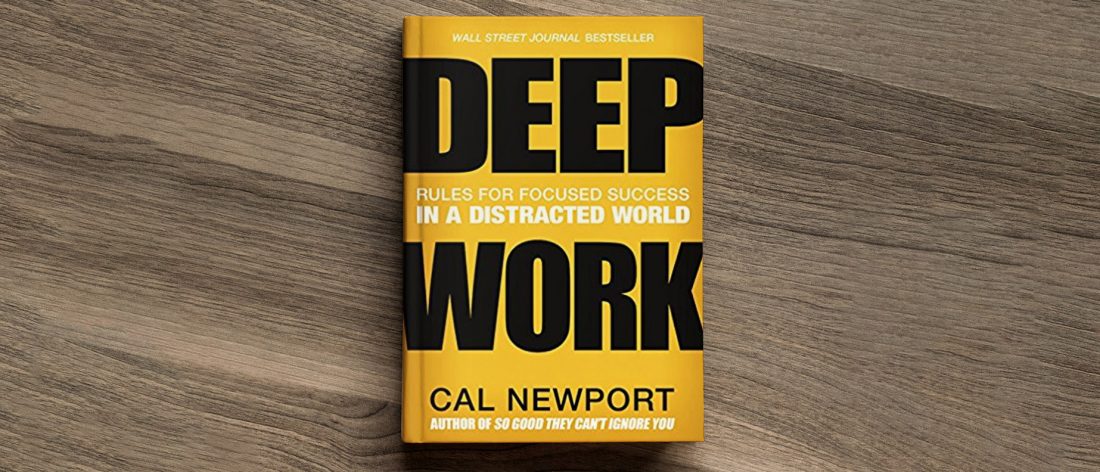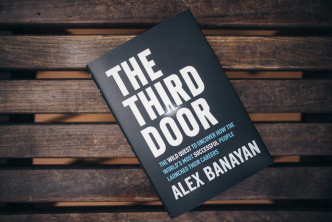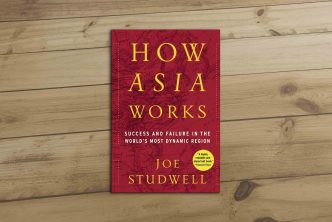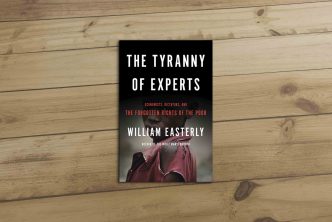This book expounds on why it is imperative to do “deep work” in today’s times and why everyone must foster this crucial skill.
BOOK REVIEW: Deep Work (Rules for Focused Success in a Distracted World) by Cal Newport. Piatkus. 2016. Length: 263 pages.
By Oghosa Erhahon
In a 2016 Ted Talk, the author of Deep Work (Rules for Focused Success in a Distracted World), Cal Newport, shared his critical pointers on how and why he has managed to have never been on social media. As he describes himself, the millennial Computer Scientist claims that fewer people are diving deep into getting things done with more people spending time distracted. In his Ted talk, Newport expressively transcribes that social media is not a fundamental technology but a source of entertainment and therefore should not be frowned upon if someone decided to use or not use it. To say you do not use social media is not a strong social stance and no more controversial than saying you instead go for a walk with your dog than play a puzzle. Newport has demonstrated how his no use of social media (except his blog) has aided his ability to perform deep work over the years. This commitment to depth has awarded the author who has published four booked, earned a Ph.D., all while rarely working past five or six p.m.; during workweeks. Newport has built his days around blocks of deep uninterrupted, carefully directed concentration periods that have produced a lot of valuable output.
In this book published in 2016, Cal Newport shares ‘Deep work’ as the different multi strains of evidence that point that in a competitive market economy, the market values the ability to produce rare and valuable things. The market dismisses activities that can be easily replicated and do not provide any or little value. For instance, a 16-year-old could create a social media page, share stories and photos, and gain likes and engagement. Still, it would be merely outlandish for that same 16-year-old to provide an analytical report or a study that required in-depth and focused work to deliver. Newport draws on the ability (which EVERYONE has) to provide rare and valuable work; the market will value. This he has found to bring people more sustainability and become more successful professionally.
In the new economy, the book identifies two core abilities for thriving. The first is ‘The ability to quickly master hard things and secondly “the ability to produce at an elite level in speed and quality’’. The first core ability summaries succinctly are ‘if you can’t learn, you can’t thrive’ and ‘to remain valuable in our economy, you must master the art of quickly learning complicated things’, and that requires deep work. Newport shares the habits that he has cultivated in helping him concentrate on hard things. He mentions, ‘This ability to fully disconnect as opposed to the more standard practice of sneaking in a few quick work emails checks or giving in to frequent surveys of social media sites allows [him] to be precise.’ The second core ability is producing at an elite level with quality and in a short time. Newport explores Nate Silver, an American statistician, and writer who analyses baseball, basketball, and elections. Unlike other stats geeks, Silver put in the effort to adapt these skills to the new and more lucrative election forecasting territory. Honing these two skills, according to Newport, are fundamental to getting ahead in this new technology-disrupted world.
The Thesis of the book arrives at how anyone can cultivate the two core skills, the answer? The ability to perform deep work. “Let your mind become a lens, thanks to the converging rays of attention, let your soul be all intent on whatever it is that is established in your mind as a dominant, wholly absorbing idea” – Antonin-Dalmace Sertillanges.
Deep Work mostly pulls into becoming deliberate about what you practice. Newport identifies the core components of deliberate practice as focusing your attention on the skill you are trying to improve and receiving feedback to keep your attention where it is most productive. The one idea to this method is understanding ‘the batching of hard but important intellectual work into long uninterrupted stretches”. One of the book’s protagonists, Adam Grant, batches his teaching into the fall, allowing him to focus on research during the spring and summer seasons. A pointer from Grant’s productivity allows for smaller time scales to alternate ‘chores’ that can’t wholly be disregarded. For example, Grant alternates when his door is open to students, colleagues, and periods (made known to those necessary). This rule is relative to work-life and maintaining productivity through deep work as it gives control of your infinite time. Organising time to isolate yourself from colleagues and family (while working at home) to enable your deep work is essential to ensuring critical productivity.
The law of productivity:
High-Quality work produced =
(Time spent) x (Intensity of Focus)
Although the attractiveness of depth in correlation to productivity, Jack Dorsey, founder of Twitter, seems to be one million exceptions to the rule, according to Newport. There are millions of individuals who thrive without any act of deep work. Distracted people who do well can meet this because it is widespread for people of this reality to be at an elite level of management. To ask a founder, CEO to spend three to four hours deep working is a waste of time when he/she could easily hire three or four subordinates to deep think about a problem and provides a range of solutions for the critical issue. Unless you are convinced that your current reality distraction is vital for your specific profession, Newport advises that you are best served to consider introducing depth into your productivity.
The values of depth generally spell bad news for business in general. Deep Work should be seen as a priority across several, if not all, business industries. But the reality is, several industries and businesses cannot afford deep work (ers). Therefore, limiting the available population who curate and understand the act of this increasingly rare and too valuable skill to Deep Work.
In Newport years of in-depth working and remaining off Social Media, Newport has dedicated hours into habits, work, and maintaining productivity.
As you deep work Newport suggests some Tips that help regain authority over how technology access your time and attention. The first tip is making people who send you emails do more work; one of his tops is through special-purpose emails. These sender filters would read, “If you have an offer, opportunity, or interdiction that might make my life more interesting, email me at interesting@calnewport.com for the reasons stated above; I will only respond to those proposals that are a good match for my schedule and interest.”
The next tip is “do more work when you send or reply to emails’’. By engaging in putting more thought into what is being proposed in an email or message that comes and leaves your inbox – you should be able to reduce the negative impact of technology taking up irrelevant emailing back and forth. And the last tip on how to regain authority over technology’s effort; do not respond. By providing complete details of engaging through email, professors would fail to respond to emails that vaguely give content to the discussion or query.
Newport’s book manages to guide how to conquer time management, with a lifestyle that consistently allows you to spend time in your day on the things that matter the most. The ultimate skill is to do deep work and develop the talent to produce rare and valuable work in a new technology-disrupted world. Like every other skill, Deep Work requires you to show up every day with deliberate/international practice within the law of productivity. It is no use focusing and essentially deep working when, in the end, you barely meet productivity. The key is not to let busyness be a proxy for productivity.
“To be great at something is to be well myelinated” – Cal Newport.
Oghosa Erhahon is a lawyer and an Energy Analyst at Nextier Power.







